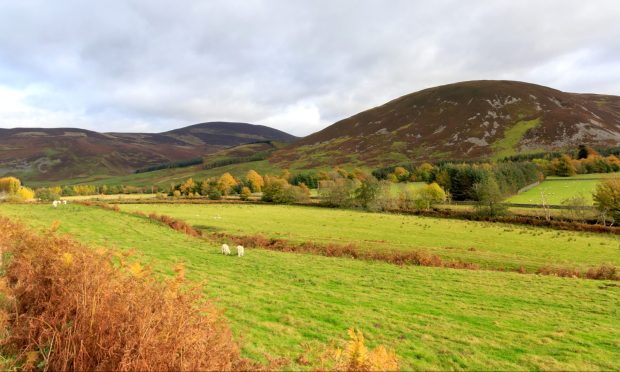The manufacturers of the bracken control herbicide Asulox has announced its withdrawal from carrying out further work on a permanent solution that would support the use of the product in the future.
It comes as the Scottish Government announced earlier this year that HSE did not consider the chemical to meet the legislative requirements for emergency authorisation despite being granted emergency authorisation in England.
NFU Scotland (NFUS) argued that the ban will attract Scotland’s hillside to monocultures of tick-laden nature-depleted bracken which has ramifications for farmers, crofters, rural communities, human health and biodiversity.
Peter Douglas, chair of NFUS’ environment and land use committee said: “Scotland’s farmers and crofters are facing an uphill battle to control existing stands of bracken and prevent further rapid spread from robbing Scottish hillsides of quality grazing for animals and vital habitats for wildlife.
“In the face of there being no viable control alternative to Asulox, the position taken by the Scottish Government in June was a major disappointment, particularly when the product did receive emergency authorisation in England.
“The potential for emergency reauthorisation of Asulox in 2024 to be successful relied on the support and evidence that UPL would have provided. This will mean that there will be no Asulox available for bracken control in 2024 and beyond.
““This is disappointing, as the threat, spread and impact of bracken across Scotland’s hills and uplands is increasing every day.”
Mr Douglas continued: “There are non-chemical methods of control available such as bruising, cutting or rolling. However, on many hill farms, bracken is on land that is too steep or rocky for ground-based vehicles to reach. Attempting non-chemical methods would be an unacceptable health and safety risk and aerial spraying is the only viable option.
“We believe that a more consistent and strategic approach to bracken is needed for the long-term and we will work with other stakeholders in the Bracken Control Group to achieve that. This should be based on improved stewardship and emphasis on integrated pest management.
“However, without a viable control strategy in the short term, this invasive weed will continue to pose a significant and unacceptable threat to biodiversity, agriculture, animal welfare, and public health in Scotland.”
Meanwhile, Scottish Conservative Shadow Rural Affairs Secretary Rachael Hamilton said the announcement was a ”hammer blow” for farmers and crofters in Scotland.
She said: “They (farmers and crofters) had already been ignored by the SNP-Green government when they rejected the emergency use of Asulox earlier this year.
“With the manufacturer now pulling out of any future work, our rural communities – and those visiting them – will face an increased risk of being bitten by ticks, which could lead to lyme disease.
“This only reinforces the need for an urgent bracken control strategy, if this misguided ban on Asulox is going to continue next year.”
